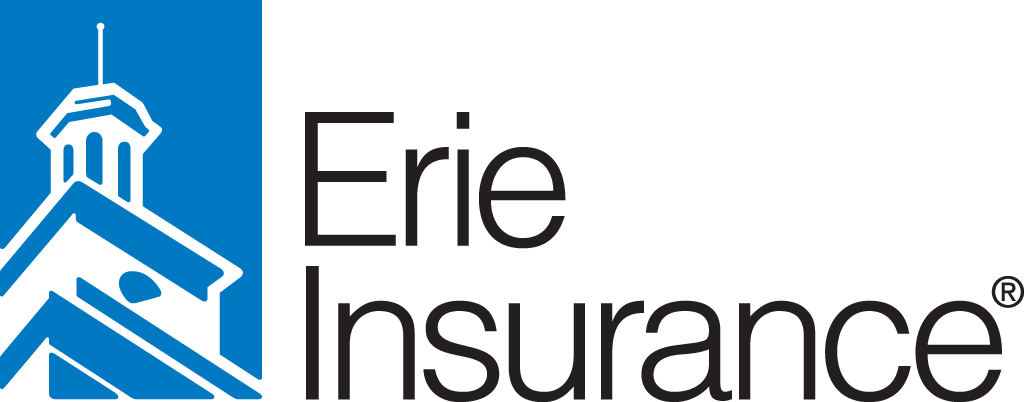The average cost of homeowners insurance in West Virginia is $1,205 per year, or about $100 per month, according to a NerdWallet analysis. That’s less than the national average of $1,820 per year.
Note: Some insurance companies included in this article may have made changes in their underwriting practices and no longer issue new policies in your state.
Why you can trust NerdWallet
Our writers and editors follow strict editorial guidelines to ensure fairness and accuracy in our writing and data analyses. You can trust the prices we show you because our data analysts take rigorous measures to eliminate inaccuracies in pricing data and may update rates for accuracy as new information becomes available.
We include rates from every locale in the country where coverage is offered and data is available. When comparing rates for different coverage amounts and backgrounds, we change only one variable at a time, so you can easily see how each factor affects pricing.
Our sample homeowner had good credit, $300,000 of dwelling coverage, $300,000 of liability coverage and a $1,000 deductible.
The best homeowners insurance in West Virginia
If you’re looking to buy homeowners insurance from a well-rated national brand, consider one of these insurers from NerdWallet’s list of the Best Homeowners Insurance Companies.
More about the best home insurance companies in West Virginia
State Farm
Well-established insurer with a lengthy list of coverage options.
Coverage options
More than average
Average set of discounts
NAIC complaints
Fewer than expected
State Farm
Well-established insurer with a lengthy list of coverage options.
Coverage options
More than average
Average set of discounts
NAIC complaints
Fewer than expected
As America’s largest insurer, State Farm stands out for its long list of coverage options. Its policies generally include extra dwelling coverage in case it costs more than expected to rebuild your home after a covered disaster. You may also be able to add coverage for things like identity theft, damage from backed-up drains and personal injury liability.
America’s largest home insurer celebrated its 100th anniversary in 2022. One useful endorsement you may be able to add to a State Farm policy is an inflation guard rider, which automatically increases your policy limits to make sure your coverage doesn’t fall short.
Erie
Best for homeowners in parts of the Mid-Atlantic, Southeast or Midwest who want to work with an agent.
Coverage options
More than average
Average set of discounts
NAIC complaints
Fewer than expected

Erie
Best for homeowners in parts of the Mid-Atlantic, Southeast or Midwest who want to work with an agent.
Coverage options
More than average
Average set of discounts
NAIC complaints
Fewer than expected
Based in Pennsylvania, Erie is a regional insurer that offers guaranteed replacement cost for the structure of your home. With this coverage, the company will pay to rebuild your home completely after a disaster, even if the amount exceeds your dwelling limit.
Got a car to insure, too? If you bundle your home and auto insurance with Erie, you could get a discount of around 20%. You may also be able to save if your home has certain safety and security features such as smoke alarms or sprinkler systems. For more details, read our Erie home insurance review.

Nationwide
For shoppers seeking a broad range of coverage options, Nationwide may fit the bill.
Coverage options
More than average
Great set of discounts
NAIC complaints
Close to expected

Nationwide
For shoppers seeking a broad range of coverage options, Nationwide may fit the bill.
Coverage options
More than average
Great set of discounts
NAIC complaints
Close to expected
Nationwide’s standard homeowners policies include ordinance or law coverage, which pays to bring your home up to the latest building codes after a covered claim. Its policies also include coverage for unauthorized credit or debit transactions. For an extra cost, you may be able to add coverage for things like water backup, identity theft and stronger materials to replace your roof.
The Nationwide website offers plenty of ways to manage your policy, including filing and tracking claims, paying bills and getting quotes.

USAA
Offers perks and affordable rates for the military community.
Coverage options
Below average
Average set of discounts
NAIC complaints
Far fewer than expected

USAA
Offers perks and affordable rates for the military community.
Coverage options
Below average
Average set of discounts
NAIC complaints
Far fewer than expected
USAA sells homeowners insurance to veterans, active military members and their families. If that description fits you, you may want to consider a USAA policy. That’s because the company’s homeowners insurance has certain features that other insurers may charge extra for.
For example, USAA automatically covers your personal belongings on a “replacement cost” basis. Many companies pay out only what your items are worth at the time of the claim, which means you may not get much for older items. USAA pays enough for you to buy brand-new replacements for your stuff.
How much does homeowners insurance cost in West Virginia?
The average annual cost of home insurance in West Virginia is $1,205. That’s 34% less than the national average of $1,820.
In most U.S. states, including West Virginia, many insurers use your credit-based insurance score to help set rates. Your insurance score is similar but not identical to your traditional credit score.
In West Virginia, those with poor credit pay an average of $3,320 per year for homeowners insurance, according to NerdWallet’s rate analysis. That’s 176% more than those with good credit.
Average cost of homeowners insurance in West Virginia by city
How much you pay for homeowners insurance in West Virginia depends on where you live. For instance, the average cost of home insurance in Charleston is $1,135 per year, while homeowners in Morgantown pay $1,030 per year, on average.
|
Average annual rate |
Average monthly rate |
|
|---|---|---|
|
Charles Town |
||
|
Charleston |
||
|
Clarksburg |
||
|
Huntington |
||
|
Martinsburg |
||
|
Morgantown |
||
|
Parkersburg |
||
|
South Charleston |
||
|
St. Albans |
||
The cheapest home insurance in West Virginia
Here are the insurers we found with average annual rates below the West Virginia average of $1,205.
|
NerdWallet star rating |
Average annual rate |
|
|---|---|---|
|
4.0 NerdWallet rating |
||
|
*USAA homeowners policies are available only to active military, veterans and their families. |
||
What to know about West Virginia homeowners insurance
When shopping for the best homeowners insurance in West Virginia, make sure to consider significant weather that can damage your property, such as flooding, seasonal storms, wildfires, landslides and mudflows.
Flooding
West Virginia is particularly vulnerable to flooding, with an estimated 46% of the state’s roads at risk of flooding. Yet, standard homeowners insurance policies typically do not cover flood damage. As a result, homeowners in flood-prone areas likely need to purchase separate flood insurance to protect their property from water damage.
To find out if your home is in a high-risk area, check out the Federal Emergency Management Agency’s flood maps or visit RiskFactor.com, a website from the nonprofit First Street Foundation. Even if your property is deemed low risk, it may be worthwhile to purchase flood insurance for extra peace of mind.
Note that while you can purchase flood coverage any time, there’s typically a 30-day waiting period before the insurance takes effect. Here’s more information about flood insurance and waiting periods.
Thunderstorms
West Virginia experiences severe wind and thunderstorms with high winds, hail and lightning. These storms can cause significant damage to your home’s roofs, windows or siding. Typical homeowners insurance policies cover damage caused by thunderstorms, including wind and hail damage.
However, it’s still important to review your policy for specific details and exceptions. For example, while your policy may have the same deductible for most claims, it may have a separate deductible for certain types of claims like those from wind and hail damage. These deductibles can be a flat rate, such as $1,000, or a percentage of the dwelling coverage. Suppose your policy has a $1,000 deductible for most claims and a 1% deductible for wind claims. If your house has $250,000 worth of dwelling coverage, you’d have to pay for the first $2,500 of wind damage yourself.
Winter storms
While some West Virginia winters can be mild, the state often sees harsh winter conditions, including heavy snowfall and ice storms. A powerful winter storm can cause significant damage to your home from the freezing temperature, weight of ice or snowmelt.
Homeowners insurance generally covers winter storm-related damages, but make sure to verify the specific coverage limits and deductibles in your policy. Some types of winter weather damage may require extra coverage. For instance, you’ll typically need a separate flood insurance policy to cover flood damage caused by snowmelt.
Landslides and mudflows
Many areas of West Virginia are prone to landslides or mudflows due to the state’s hilly terrain and heavy rainfall. These sudden events can cause significant damage, including breaking walls, pushing a house off its foundation or even burying your property.
Landslides and mudslides are not covered under typical homeowners insurance policies. Landslides are considered “earth movement” events and need a separate policy in order to be covered. Mudflows may be covered if you have flood insurance. If you live in an area with high-risk terrain, make sure you have enough insurance to cover your home and belongings against damage from landslides or mudflows.
Wildfires
West Virginia is home to millions of acres of forest across the state. With so much wooded terrain, the state is at risk of wildfires, especially during dry periods. These spread quickly and can cause significant damage to homes.
Homeowners insurance typically covers fire-related damages, including those caused by wildfires, but check your policy for specific coverage details and exclusions. Pay particular attention to your dwelling coverage limit. This is the amount the insurance company will pay to rebuild your house. A significant fire can destroy your home, so talk with your insurer to ensure you have enough coverage to rebuild if necessary.
West Virginia insurance department
If you need to file a complaint against your insurer, you can do so using an online form or by mail. The Consumer Services Division can also help answer questions about the complaint form by phone at 888-879-9842.
Amanda Shapland contributed to this story.
Is homeowners insurance required in West Virginia?
Homeowners insurance is not legally required by West Virginia state law. However, your lender may require you to purchase home insurance.
Does West Virginia home insurance cover flooding?
Standard homeowners insurance policies in West Virginia do not cover flooding. You’ll need additional flood insurance to cover your home and belongings against flood damage.
How can I save money on homeowners insurance in West Virginia?
There are several ways to save money on homeowners insurance in West Virginia:
-
Shop around to make sure you’re getting the best rate.
-
Choose a higher deductible. In case of any claims, you’ll pay more out of pocket, but your premiums will be lower.
This post was originally published on Nerd Wallet







